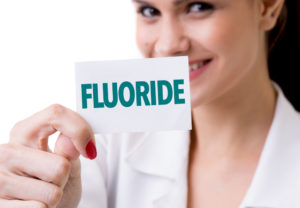Tips to Prevent Cavities in Children
 We know you have enough pressure as parents, so we hate to add one more thing. But did you know that you have the power to prevent almost all of your children’s cavities? Most cavities are preventable, and by following a few important rules, you can protect your children’s teeth and save yourself some money
We know you have enough pressure as parents, so we hate to add one more thing. But did you know that you have the power to prevent almost all of your children’s cavities? Most cavities are preventable, and by following a few important rules, you can protect your children’s teeth and save yourself some money
Oral Hygiene
The first important role you play in your children’s dental health is in their oral hygiene. Kids cannot be trusted to take good care of their teeth. Even once they are physically capable of good brushing and flossing, you must still play an active role in it by keeping them accountable.
- Start Early – You should begin brushing your baby’s teeth as soon as one appears. You can purchase an infant toothbrush or simply use a wet washcloth to remove the soft plaque that builds up each day. This should become a nightly routine. As the child grows, he or she will understand the necessity of a routine you have performed since before he can remember.
- Be Thorough – We know you have a million things to do to get your child ready for bed. But you musts not rush through a cursory brushing, or that is what your child will do as soon as he takes the reins. Take your time, making sure to touch every single surface of every tooth in your child’s mouth. When all twenty baby teeth are present, begin flossing them in addition to brushing. Both brushing and flossing are easiest for you when the child lays down with his head in your lap, allowing you to look down into his open mouth.
 Set a Good Example – Children are much more likely to follow your example than simply do what you tell them to do. By watching you brush and floss every night before bed, your child will understand its importance. Make it a family affair. You want your child to grow up with the assumption that good oral hygiene is just a normal part of everyday life.
Set a Good Example – Children are much more likely to follow your example than simply do what you tell them to do. By watching you brush and floss every night before bed, your child will understand its importance. Make it a family affair. You want your child to grow up with the assumption that good oral hygiene is just a normal part of everyday life.
Snacks
In general, you are responsible for most of the food your child eats. When it comes to between-meal snacks, you can lower his or her cavity risk by only providing healthy, low-sugar snacks. We know kids always want to eat something sugary. Eating snacks packed with sugar between meals greatly increases the risk for cavities. Instead, offer them nuts, veggies or cheese. Anything that has complex carbohydrates or protein and fat is better than chili’s, crackers candy, and cookies.
When it comes to candy, try to steer your child toward a chocolate bar and away from sticky or gummy candies that can stick to the teeth for long periods of time. Again, candy should be a treat enjoyed with a meal and not as a between-meal snack.
Drinks
Drinks are one of the biggest culprits in causing cavities. When drinking a beverage between meals, your body does not produce as much saliva to counteract the sugar and acid in the drink. For this reason, we recommend sodas, juices or sports drinks for children at mealtime only.
Most people spend more time sipping on a drink than they do when eating a snack. The amount of time that you expose your teeth to sugar and acid is very important. If you sip on a soda throughout the afternoon, you cavity risk goes up. For example, a person who drinks three Dr. Pepper sodas a day, but has them each with a meal, would actually have a LOWER cavity risk than someone who only drinks a single Dr. Pepper, but sips on it for three hours in the afternoon.
For very young children, we recommend no sodas at all and juice or sports drinks with a meal only. If they take a sippy cup to bed, it should only contain water. Anything besides water, even milk, can lead to cavities. Baby teeth have a very thin coating of enamel, unlike permanent teeth, so it is easier for cavities to start.
Fluoride
 Fluoride is a naturally occurring mineral in the ground in many places. When fluoride is present in drinking water, our bodies incorporate it into the formation of teeth. Teeth formed with the addition of fluoride are much stronger and more resistant to cavities than those not exposed to fluoride. For this reason, it is important that you drink fluoridated water during pregnancy and that your babies and young children have fluoride in their water, too.
Fluoride is a naturally occurring mineral in the ground in many places. When fluoride is present in drinking water, our bodies incorporate it into the formation of teeth. Teeth formed with the addition of fluoride are much stronger and more resistant to cavities than those not exposed to fluoride. For this reason, it is important that you drink fluoridated water during pregnancy and that your babies and young children have fluoride in their water, too.
Most municipalities add the precise amount of fluoride recommended for cavity prevention into the drinking water. However, not all cities do this, so you might want to check your local water report to see if fluoride is present in your drinking water. Another thing to consider is whether or not you actually drink your tap water. Many people drink only bottled water or their tap water filtered through reverse osmosis. This means you are not getting fluoride in your drinking water, and neither are your children. If you do not want to drink your tap water but do want to incorporate fluoride for healthy teeth, your medical doctor or dentist can prescribe a fluoride supplement to help you and your children receive the proper amount necessary for strong, healthy teeth.
You can also opt for professional fluoride treatments at your dental visits. Ask Dr. Ann and Dr. Lauren how a professional fluoride treatment would help you and your children.
More Questions about Preventing Cavities in Children?
Call Designer Smiles today to schedule a consultation with Dr. Ann and Dr. Lauren. They can answer any questions you have about cavities, cavity prevention, and your child’s unique risk factors.
